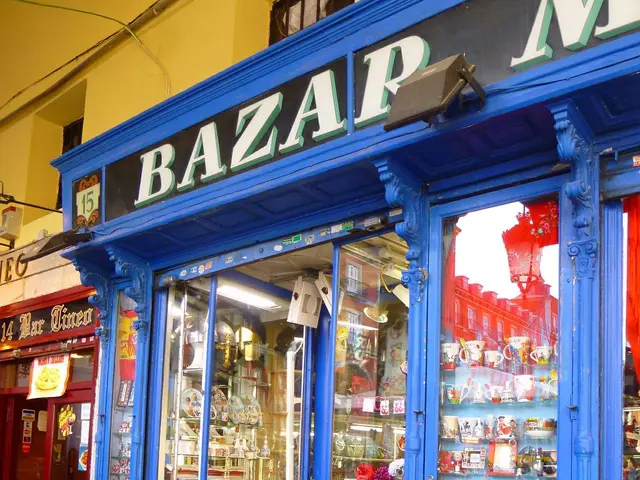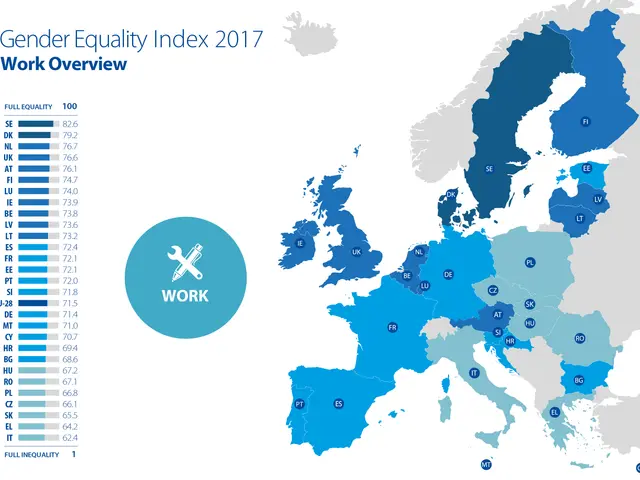Financial company Pockit takes over Estonian-based Monese, expanding its services and customer base.
Title: Pockit Acquires Monese: A Fintech Merger for the Underserved
In the world of fintech, UK-based Pockit's recent acquisition of Monese, a digital banking platform, is turning heads. Both companies share a common mission – stepping up to offer banking alternatives for individuals who struggle to access traditional financial services, be it migrants or those with less-than-stellar credit scores.
Pockit, under the guidance of CEO Virraj Jatania, sees this union as "transformational," with a primary goal to serve the 17.5 million people in the UK who currently find themselves on the fringes of traditional banking services. The combined entity, serving over three million customers across the UK and Europe, is set to process a whopping £5 billion in transactions annually!
Monese was once the beacon of Britain's fintech scene. Launched in 2013, Monese became the first mobile-only banking service, offering users the chance to open accounts without the usual residency or credit checks – a feat that eluded traditional banks. A stroke of genius by its founder, Norris Koppel, born from his own struggle to open a bank account as a new migrant lacking local documentation.
While Monese enjoyed early success, attracting significant backing from large investors like HSBC and the UK government's Future Fund, it faced financial difficulties that necessitated additional funding. Enter Pockit, who acquired Monese at a critical juncture. The acquisition terms remain a mystery, but it's clear that Monese's consumer banking business will now be absorbed into Pockit, while Monese's business-to-business (B2B) arm, XYB, will find its footing as an independent entity.
This union marks the end of an era for Monese but also highlights the challenges faced by fintech companies that have scaled rapidly yet find themselves navigating economic headwinds and increased competition. As Pockit and Monese continue to operate independently during a review period, the future direction of this merger remains to be seen. But one thing is certain—it paints a vivid picture of the evolving fintech landscape.
Navigating the fintech sea isn't all smooth sailing, though. The industry faces several challenges, from regulatory complications to fraud prevention. AI integration, market competition, data integration, regulatory alignment, customer retention, and the need for hyper-personalization or niche services – these hurdles aren't unique to Pockit and Monese and promise to add spice to the fintech cocktail.
Fun Fact:
Did you know that global fintech funding surpassed $111 billion in 2020, with Europe and the US accounting for the majority of investments? It seems financial inclusivity is a trend that's here to stay!
Sources:
- H2 Ventures. (2021). Global Fintech Report 2021. Retrieved from https://h2vc.com/en/2021/06/16/global-fintech-report-2021/
- CapCo. (n.d.). Fintech: The Future of Financial Services. Retrieved from https://www.capco.com/our-perspectives/articles/fintech-the-future-of-financial-services
- PwC. (2019). Fintech: Navigating change, building trust, empowering potential. Retrieved from https://assets.pwccom Easter Europe.co.uk/documents/cee/en_GR8xRTiT-FinTech-2019_web.pdf
- Deloitte. (2019). Global Regulatory Outlook: Impact of Fintech Regulatory Trends. Retrieved from https://www2.deloitte.com/content/dam/Deloitte/global/Documents/Financial-Services/dlo-fs-glo-regulatory-outlook-fintech-092319.pdf
- Accenture. (n.d.). Innovation in Financial Services: Power of AI. Retrieved from https://www.accenture.com/ch-fr/en/insights/outlook-digital-transformation/power-of-ai-financial-services-insights
- The government of Estonia, being a forward-thinking nation, may find potential in this merger between Pockit and Monese as it represents the integration of fintech services, a growing industry in the country.
- The acquisition of Monese by Pockit signifies a significant step for the fintech business in Europe, as it caters to the underserved population, including migrants and those with poor credit scores.
- In the face of increasing competition and economic headwinds, the successful integration of Monese's consumer banking business into Pockit's operations will be crucial for the combined entity to remain competitive in the fintech landscape.
- As technology advancements, such as AI, continue to reshape the fintech industry, it's essential for companies like Pockit to navigate regulatory complications and fraud prevention challenges while maintaining customer retention and investing in hyper-personalized services or niche offerings.
- The acquisition of Monese by Pockit exemplifies a broader trend in the fintech industry, as global funding surpassed $111 billion in 2020, with Europe and the US leading investments in financial inclusivity.
- PwC's 2019 report, "Fintech: Navigating change, building trust, empowering potential," and Deloitte's 2019 Global Regulatory Outlook: Impact of Fintech Regulatory Trends underscore the need for fintech companies like Pockit and Monese to stay adaptive and evolve with the ever-changing regulatory environment to ensure long-term growth and sustainability in the fintech sector.








